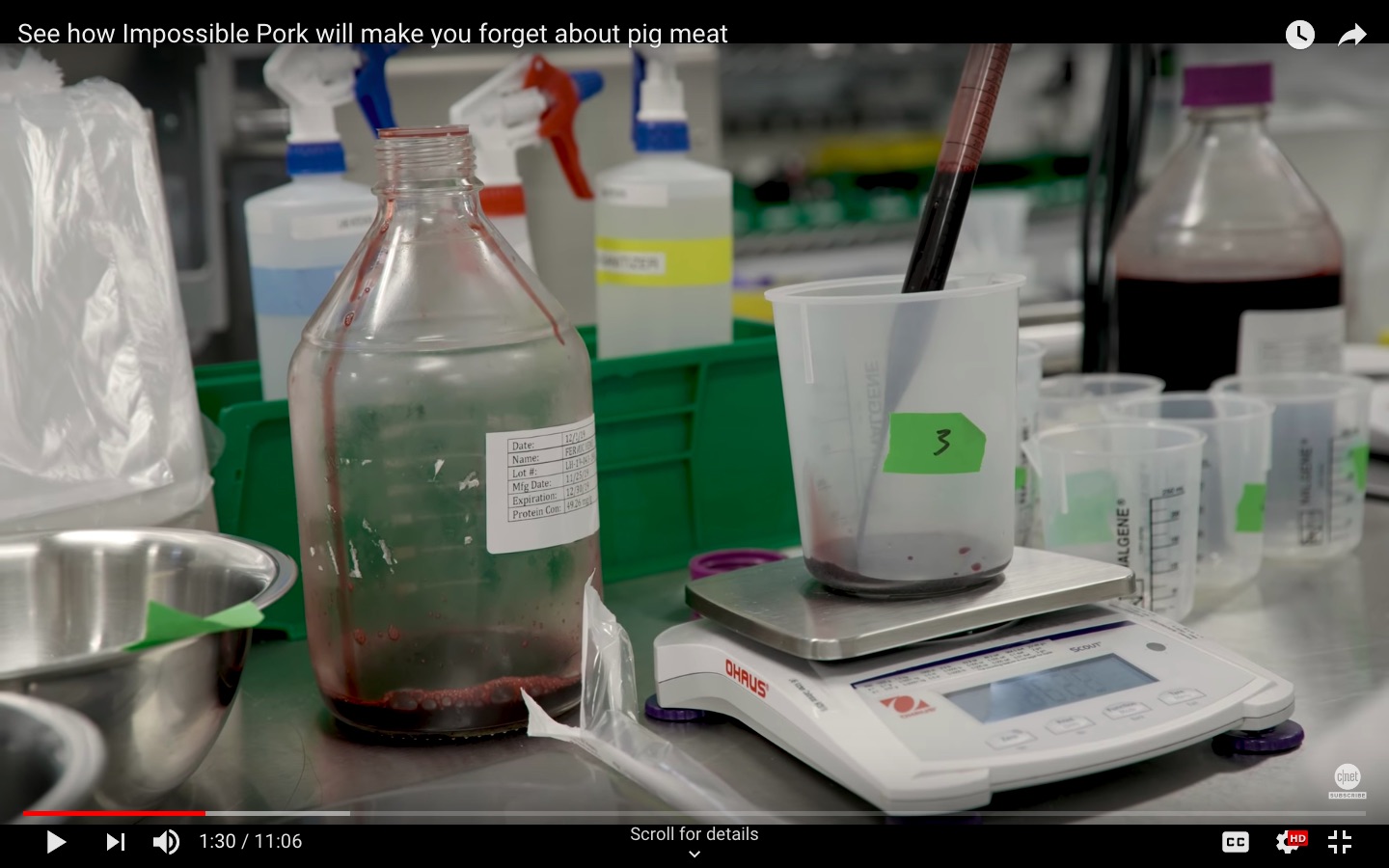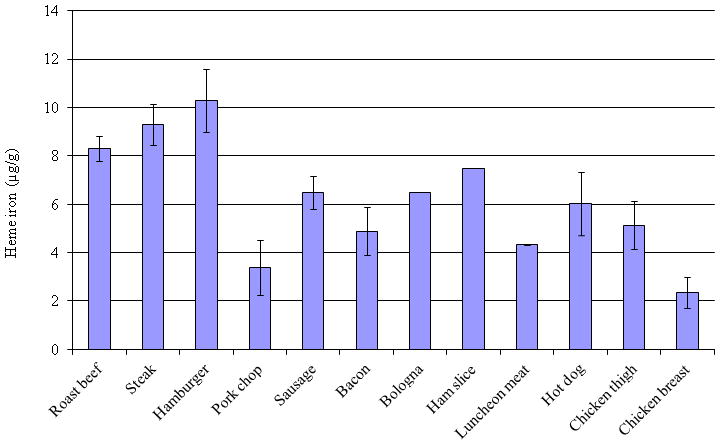The new video See how Impossible Pork will make you forget about pig meat includes a very short discussion of
- the addition of heme to the product to make it taste like beef
- the deep red color of a heme solution
- that pork is not nearly as red as beef, (after cooking it's essentially off-white)
Does pork (pig/swine muscle tissue) have substantially less heme content than beef (steer/bovine muscle tissue)? If heme is contributing to the flavor of cooked meats (rather than raw) such as pork and beef, why do they no longer have a red color after cooking?


